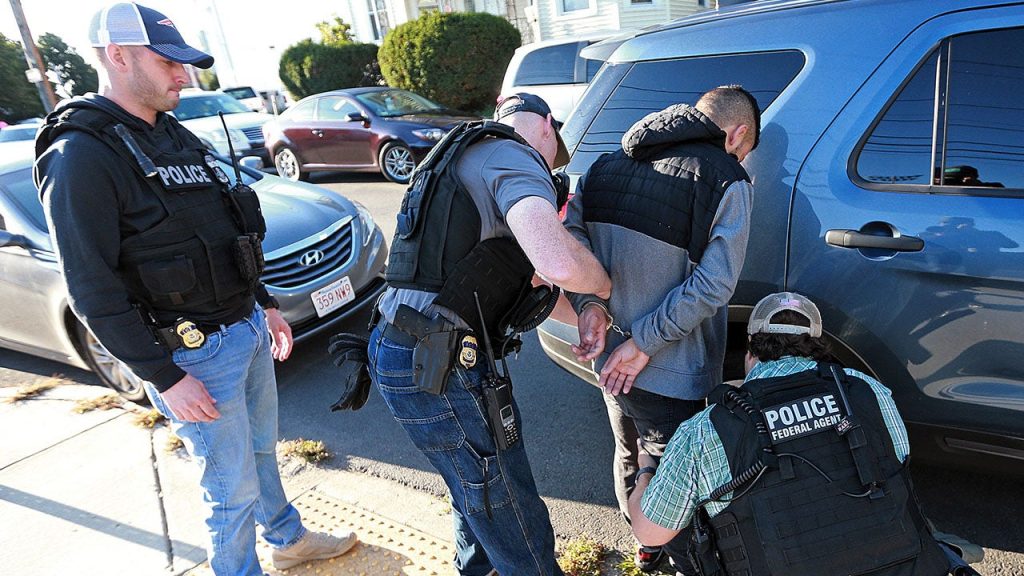The impending Trump administration is poised to reignite the contentious debate surrounding sanctuary jurisdictions, localities that limit cooperation with federal immigration enforcement. America First Legal (AFL), a conservative legal group led by Stephen Miller, Trump’s incoming deputy chief of staff for policy, has issued notices to nearly 250 officials in these jurisdictions, warning of potential legal repercussions for obstructing federal immigration operations or concealing illegal immigrants. This preemptive legal maneuver foreshadows a likely clash between the administration and localities resistant to stricter immigration enforcement.
AFL’s central argument hinges on the supremacy of federal immigration law. The group cites federal statutes prohibiting state and local interference with communication regarding immigration status, and criminalizing the harboring of illegal immigrants. AFL contends that sanctuary policies violate these laws, exposing officials to criminal and civil liability. Furthermore, they argue that victims of crimes committed by illegal immigrants could potentially sue jurisdictions with sanctuary policies. This aggressive legal stance sets the stage for a potential wave of litigation targeting sanctuary cities and states.
Adding to the pressure, AFL has launched a website mapping “sanctuary strongholds,” providing public access to information about jurisdictions with sanctuary policies and contact details for their elected officials. This tactic aims to mobilize public pressure against these localities, creating a political climate conducive to stricter enforcement. Concurrently, AFL is pursuing data from the Department of Justice regarding the citizenship status of individuals charged with crimes against women and children, seemingly aiming to link undocumented immigrants to such crimes and further bolster the argument against sanctuary policies. They are also requesting information from state and local officials about organizations perceived as undermining immigration enforcement, broadening the scope of their challenge to include not just government entities, but also civil society groups.
The recent arrest of an illegal immigrant in New York City in connection with a horrific murder has fueled AFL’s campaign, with the group citing it as evidence of the dangers posed by sanctuary policies. AFL Senior Vice President Reed D. Rubenstein has condemned sanctuary jurisdictions as “sheer insanity,” accusing left-wing politicians of endangering citizens and undermining the rule of law. This rhetoric underscores the group’s intention to frame the issue as a matter of public safety and national security, potentially resonating with a broader audience.
The stage is set for a protracted and multifaceted battle over immigration enforcement. While some jurisdictions, like Boston, have reaffirmed their commitment to sanctuary policies, others have signaled a willingness to cooperate with the incoming administration. New York City Mayor Eric Adams and Illinois Governor J.B. Pritzker have both expressed interest in collaborating with Trump’s border czar, Tom Homan, on deporting violent criminal illegal immigrants. This suggests a potential fissure within the Democratic party on the issue, with some prioritizing public safety concerns over unwavering support for sanctuary policies.
Underlying this impending conflict is the stark reality of a significant backlog in deportation cases. Data presented to Congress reveals that 1.4 million noncitizens with deportation orders are not currently in ICE detention. This backlog presents a logistical and legal challenge for the Trump administration, but also underscores the potential scale of the deportation effort. The administration’s approach to addressing this backlog, coupled with the resistance from sanctuary jurisdictions, promises to define the next chapter in the ongoing national debate over immigration. The legal challenges initiated by AFL, coupled with potential executive actions by the administration, will likely shape the contours of this debate and determine the fate of sanctuary policies across the nation.

